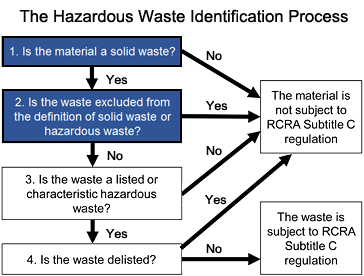The 10-Second Trick For Reclaim Waste
Reclaim Waste for Dummies
Table of ContentsReclaim Waste Things To Know Before You Get ThisThe Basic Principles Of Reclaim Waste Some Ideas on Reclaim Waste You Should KnowThe 7-Minute Rule for Reclaim WasteReclaim Waste Fundamentals Explained
Discover the types, incidents, and kinds of fluid waste. Domestic sewage waste describes the waste and products from a residential septic system. This kind of waste is created by human beings in residences, institutions, and various other structures. This only consists of septic tanks that have a drainpipe field. The correct monitoring and disposal of domestic sewer waste require fluid waste to be moved to a sewage treatment plant where the correct approaches and devices are used to cleanse and dispose of waste.
Commercial waste usually includes possible hazards, such as flammable products or a combination of liquid and solid waste items, and requires a much more sophisticated and detailed disposal procedure. The disposal of business waste generally involves the filtration of waste before transport to make certain risk-free and appropriate disposal. Industrial waste is produced from by-products and runoff of commercial procedures and manufacturing.
This type of waste can not utilize the very same sewer administration transport or procedures as septic or business liquids. The industrial waste management procedure requires the evaluation and testing of liquid waste prior to it goes through the disposal process (liquid waste removal melbourne). Overflow waste is the liquid waste that comes from overflow and excess stormwater in extremely populated areas or cities
Drainage waste can trigger contamination and flooding if not dealt with properly. Ensuring correct waste administration can stop catastrophes and decrease ecological injury.
Not known Details About Reclaim Waste
Contact PROS Solutions today to find out about our waste monitoring and disposal services and the appropriate ways to take care of the fluid waste you produce.
(https://www.storeboard.com/reclaimwaste2)Do you understand what happens to your water when you end, flush the commode or drain pipes the cleaning device? No? Well, it deserves understanding. This so-called 'wastewater' is not just a crucial resource yet, after treatment, will certainly be released to our land, waterways or the sea. Used water from toilets, showers, baths, kitchen area sinks, washings and commercial processes is referred to as wastewater.

water utilized to cool down machinery or tidy plant and devices). Stormwater, a form of wastewater, is overflow that flows from farming and urban areas such as roofings, parks, gardens, roads, courses and gutters right into stormwater drains pipes, after rain. Stormwater moves untreated directly to neighborhood creeks or rivers, at some point reaching the ocean.
An Unbiased View of Reclaim Waste
In Queensland, a lot of wastewater is dealt with at sewer therapy plants. Wastewater is transferred from domestic or commercial sites through a system of sewers and pump terminals, referred to as sewage reticulation, to a sewer therapy plant. Local governments develop, maintain and operate most sewage therapy plants. Operators are accredited under the Environmental Security Act 1994 to release treated wastewater at an appropriate environmental criterion right into rivers.
The Department of Natural Resources encourages city governments about managing, operating and maintaining sewerage systems and therapy plants. In unsewered locations, city governments may require owners to set up individual or house sewage treatment systems to treat residential wastewater from bathrooms, cooking areas, shower rooms and washings. The Division of Natural Resources authorises making use of house systems when they are verified to be effective.
In some new subdivisions, treatment of some stormwater to get rid of trash, sand and gravel has actually begun making use of gross contaminant catches. Wastewater treatment takes place in 4 phases: Eliminates strong issue.
Wastewater after that flows into huge tanks where solids resolve and are eliminated as sludge. Grease and scum are skimmed from the surface area. Makes use of tiny living microorganisms referred to as micro-organisms to break down and remove staying liquified wastes and fine fragments. Micro-organisms and wastes are incorporated in the sludge. Eliminates nitrogen and phosphorus nutrients that can cause algal flowers in our rivers and threaten water life.
The Basic Principles Of Reclaim Waste
Nutrient removal is not readily available at all sewer treatment plants because it calls for pricey specialised equipment. Clear fluid effluent created after treatment might still contain disease-causing micro-organisms - liquid waste removal.

This generally suggests wastewater has to be dealt with or pollutants removed before it can be released to rivers. The majority of wastewater streams right into the sewage system. Under the Act, city governments carry out authorizations and licences for eco relevant tasks (Ages) involving wastewater launches that may have a local influence. The department administers authorizations and licences to Periods entailing wastewater releases that could have a regional or statewide influence.
Some Of Reclaim Waste
Or else, examples are considered research laboratory analysis. Frequently several tests are needed to establish the degrees of each of the different pollutants such as oils, heavy steels and chemicals in water. Monitoring offers accurate details straight from the source about water high quality and can verify that licence conditions are being satisfied. The info obtained with tracking gives the basis for making water quality decisions.